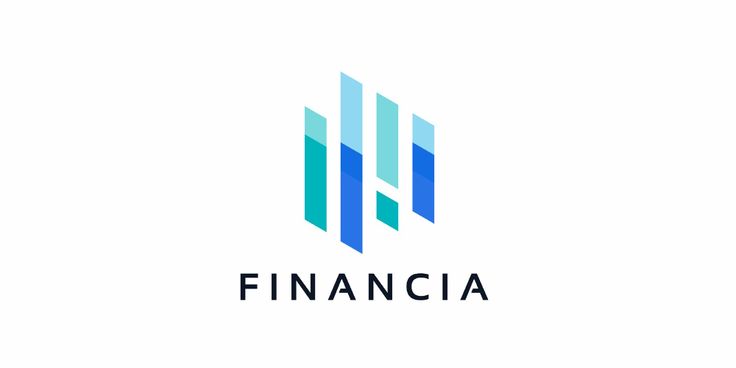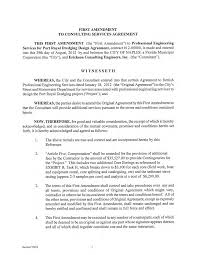
Financial advisors are financial professionals that specialize in a wide range of financial services. This includes retirement planning and charitable giving. So clients can make an informed decision about which firm to choose and what services they offer. Each firm offers different services, so it is important to choose one that provides the right services and has extensive experience.
Financial advisors who charge a flat fee
A fee-only financial advisor in Charlotte, North Carolina will help you achieve financial goals. They have expertise in many areas, including tax planning, investment management, and estate planning. Some also offer college and retirement planning services. All of them have been registered as investment advisors. Contact them for more information.
Fee-Only financial advisers might be paid an hourly fee, a retainer, or a percentage from your assets. A fee-only advisor can help you avoid conflicts that could affect your financial health. Fee-only advisors must also adhere to a fiduciary duty and provide advice that is best for you.

For a complete financial plan, some financial advisors will charge a flat fee of usually $1,000. Others earn their fees from commissions on investments you make through them. Your assets are usually between 3%-6%, and mutual fund sales loads can range from 3% to 66%.
Tax planning
Charlotte, NC financial advisors may be a good resource for you when it comes tax planning. Charlotte financial advisors can help with a wide variety of financial services. They specialize in everything from investment management to 401k plan advisory. These firms often offer tax planning advice. Some of these financial firms are independently owned, while others are based in Charlotte and serve clients nationwide.
Greenway Wealth Advisors is located in Charlotte and offers a wide variety of services, including retirement planning, estate planning, tax efficiency, and retirement planning. Nick Foy, the firm's founder has been in the financial management industry for more than a ten years. He is also a member of National Association of Insurance Financial Advisors and Investments and Wealth Institute.
Byron Financial is a smaller, boutique firm that focuses on high-networth clients. They also offer services to pension plans, profit-sharing programs, and charities. Byron Financial charges based on assets under management. There is no minimum account size.

Retirement planning
Financial advisors in Charlotte, NC provide customized financial planning services to their clients. They also help clients develop investment strategies and estate plans. They provide regular reviews, and they work to improve tax efficiency. Many clients find that financial advisors in Charlotte are reliable and offer valuable advice.
Financial advisors in Charlotte, NC may not always be able to help you with the complicated details of your retirement plan. But a financial advisor will help you to create a plan that will give you a comfortable retirement. Financial planners in Charlotte, NC can help you plan and manage your assets to ensure they will remain safe and grow in value.
In Charlotte, NC, there are financial advisors who specialize in retirement planning. These professionals may specialize in this area or work with clients throughout the area. You can also work with a Fee Only Financial Advisor. This type financial advisor does NOT receive commissions, and is legally required to serve your best interests. They are independent from any bank, brokerage or insurance company.
FAQ
How do I choose a good consultant?
Three main factors should be considered:
-
Experience - How much experience does this consultant have? Are they a beginner, intermediate, expert, or some other level? Does her resume show that she has the necessary skills and knowledge?
-
Education - What did he/she learn in school? Did he/she pursue any relevant courses once he/she graduated? Are we able to see evidence of his/her learning through the way he/she writes
-
Personality - How do we feel about this person? Would we want him/her to work for us?
-
These questions can help you determine whether the consultant is right for your needs. If the answers are not clear, it may be worthwhile to interview the candidate in person to get more information about them.
Do I need to seek legal advice?
Yes! Yes. Consultants can often create contracts with clients, without seeking legal advice. This can lead to issues down the road. What happens if the client cancels the agreement prior to the consultant's completion? Or, what happens if the consultant doesn't meet the deadlines set forth in the contract?
Avoid potential legal problems by consulting a lawyer.
How did modern consulting come to be?
The first consultants were accountants that helped companies manage finances. They became known as "accounting consultants." This was because they had become very skilled at managing financial information. The role soon expanded to include other areas, including human resources management.
The French word "to advise" is the origin of the term "consultant". It was first used by businessmen to refer to someone who could give advice about how to run an organisation. Many business owners use the term "consultant" to describe any professional advisor.
Can consulting be considered a real job?
Consulting is more than a job that allows you to quickly make money.
There are many options for consulting. These include project management, business strategy, strategy, leadership, and training. You could find yourself working with small start-ups and large international corporations.
Consulting provides you with the opportunity to develop and hone your skills, as well as gain experience within a range of industries. This could mean learning to manage teams, negotiate contracts, write proposals, manage budgets, analyze data, create presentations, conduct market research, and much more!
What skills will I need to be a consultant?
A consultant should have strong analytical skills as well as interpersonal skills. This is crucial because you might not be able to understand what you are doing when you work on complex projects. You need to be able to manage people quickly and solve problems efficiently.
Excellent communication skills are also essential. Most clients expect an answer within 24 hours. If they don't hear back from you, they assume you aren't interested. It's crucial to keep them informed and make sure they understand everything.
Statistics
- Over 62% of consultants were dissatisfied with their former jobs before starting their consulting business. (consultingsuccess.com)
- According to statistics from the ONS, the UK has around 300,000 consultants, of which around 63,000 professionals work as management consultants. (consultancy.uk)
- 67% of consultants start their consulting businesses after quitting their jobs, while 33% start while they're still at their jobs. (consultingsuccess.com)
- "From there, I told them my rates were going up 25%, this is the new hourly rate, and every single one of them said 'done, fine.' (nerdwallet.com)
- My 10 years of experience and 6-step program have helped over 20 clients boost their sales by an average of 33% in 6 months. (consultingsuccess.com)
External Links
How To
How do I start a consultancy company?
You can make a lot of money by setting up a consulting business. No prior business experience is required. A good place to start your own consulting company is to build a website. Once you have a website built, you can start using social media platforms such Instagram and Pinterest to spread the word about you services.
These tools will allow you to create a marketing plan which includes:
-
Creating content (blogs)
-
Contacts are essential for building relationships
-
Generating leads (lead generation forms)
-
Selling products online
Once you've created your marketing strategy, the next step is to find clients who are willing to pay you for your services. Some people prefer to go through networking groups and events, while others prefer to use online methods such as Craigslist, Kijiji, etc. The decision is up to each individual.
Once you have a new client, you need to discuss terms. These could be hourly fees, retainer arrangements, flat-fee contracts, or other types of fees. So that you are able to communicate clearly during the entire process, it is important to understand what you expect from a client before you accept them.
The most common type of contract for a consultancy service is an hourly agreement. You agree to offer certain services at a fixed fee each month or every week. You may be eligible to negotiate a discount, depending on the service that you offer. You must fully understand the contract you're signing before you agree to it.
Next, create invoices for your clients and send them. Invoicing is one those things that seem so simple until you actually do it. There are many ways that you can invoice your clients depending on what your preferences are. Some prefer to send their invoices directly by email, while others prefer to print and mail hard copies. No matter what method you use, ensure it works for your business!
After creating invoices are complete, you will need to collect payments. PayPal is the most popular payment option because it's easy to use and provides multiple payment options. There are many other payment options, such as Square Cash, Square Cash and Google Wallet.
Once you are ready for payments to begin, you will need to open bank accounts. You can track income and expenses separately by having separate savings and checking accounts. Setting up automatic transfers into your bank account is also helpful when paying bills.
It can seem daunting to start a consulting business. But once you understand how it works, it becomes second nature. This blog post will provide more information about starting your own consultancy business.
The best way to make extra cash is to start a consulting business. Many consultants work remotely. They don't have any need to deal with office politics, long hours or office politics. You have more flexibility than traditional employees because you aren't tied down by work hours.